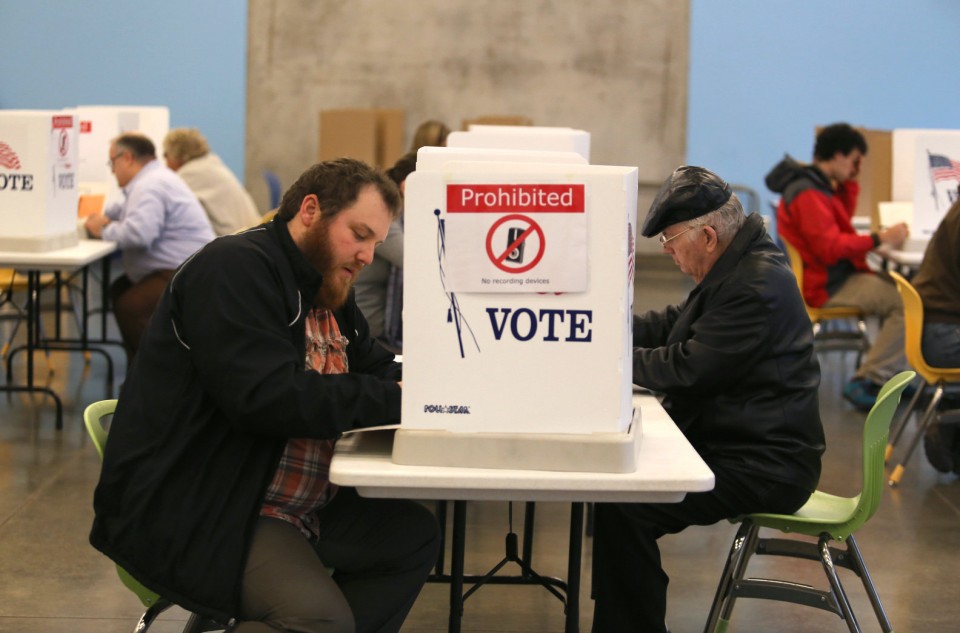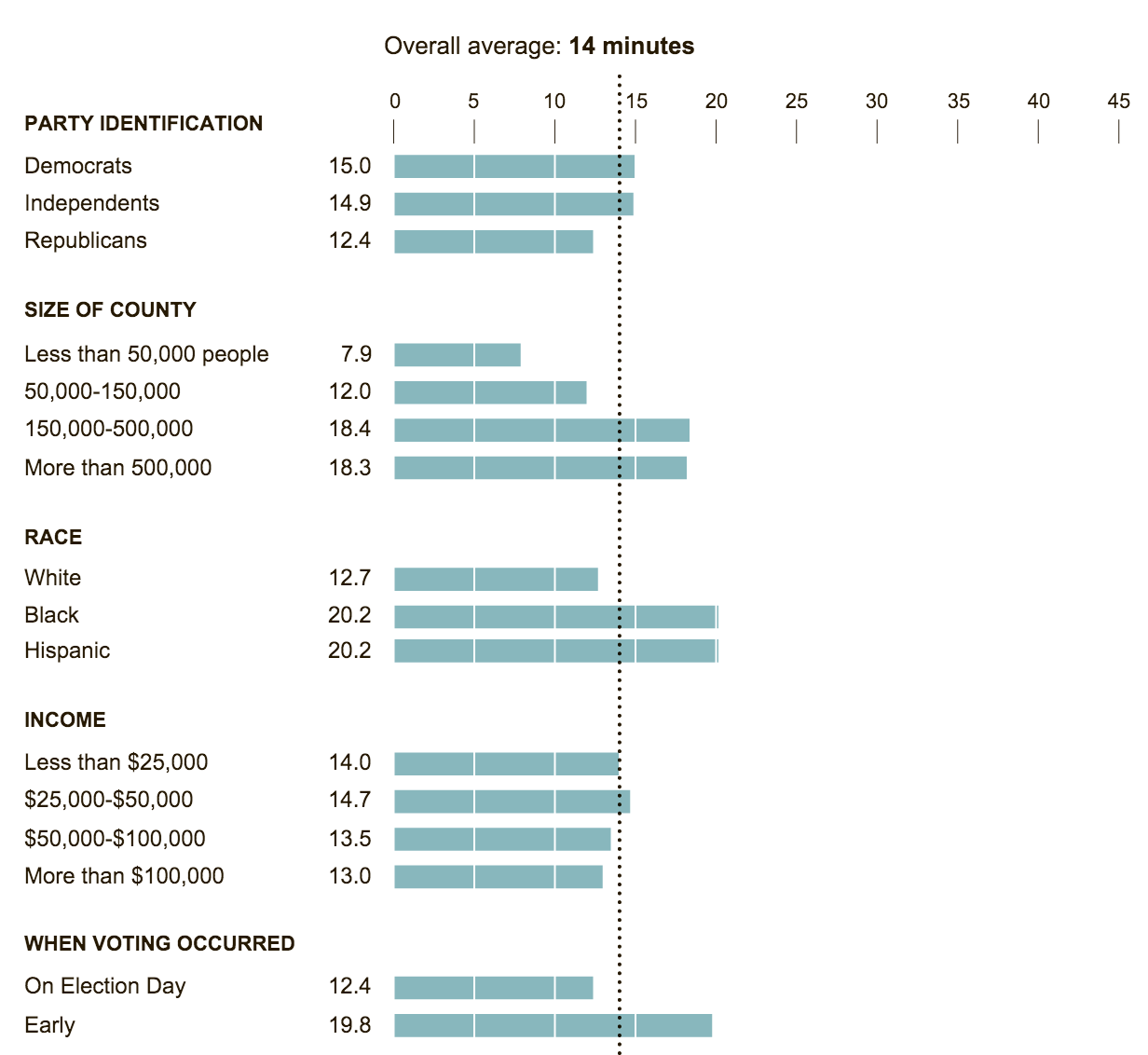Michigan’s aging voting machines a 'catastrophe waiting to happen’

Michigan voters will spend next Tuesday wondering who will win the state’s presidential primaries. Elections officials will spend that same day wondering if the state’s voting machines will make it through one more election.
Michigan’s voting machines are outdated and beginning to break down, with counties buying used parts on the Internet and nursing a computer operating system that stopped being sold in 2008.
“Every election is like waiting for a catastrophe to happen,” said Ingham County Clerk Barb Byrum. “That’s no way to run an election.”
Voting machine problems at the polls could lengthen the already long time it takes many Michigan voters to cast ballots – Michigan already ranks 46th in that category.
Funding to start replacing machines may be on the way soon, if an appropriation in Gov. Rick Snyder’s proposed budget is approved by the Legislature. But it’s not a sure thing – a similar funding request for new voting machines was cut from the state budget last year.
It’s already too late to get new voting machines for the presidential election in November. It’s hoped that if funding is approved, voters will have updated voting machines in time for the 2018 elections, when Michigan will elect a new governor.
Michigan’s optical scan voting machines are between 10 and 12 years old, according to a state Senate Fiscal Agency report in Fall 2015.
Michigan’s not alone. Our voting machines, along with many around the nation, were purchased with the help of federal funds made available to states after the controversy surrounding vote counting in the 2000 presidential election in Florida, in which the world learned about hanging chads.
Those voting machines are now outdated and breaking down, according to a study by the Brennan Center for Justice at the New York University Law School.
According to the report, 43 states are using at least some voting machines that are 10 years old or older that have “serious security and reliability flaws that are unacceptable today.”
Virginia recently discovered that voting machines used in a quarter of its districts were vulnerable to computer hacking into the voting record data,
New machines typically cost about $2,500 to $3,000 apiece, according to a report released this week by the Pew Charitable Trust.
“You can’t wait for it to break to fix it,” Republican Colorado Secretary of State Wayne Williams told Pew. “You can wait for a road to have issues to fix it, but if you wait to do that in an election, it’s too late.”
And a 2014 presidential commission on voting administration warned of an impending crisis if voting machines are not updated.
Voting machines that are 10 to 12 years old don’t sound that antiquated, until you consider they are, at their base, computers. “Do you have a cell phone that is 10 to 12 years old?” asked Oakland County Clerk Lisa Brown, who compared the state’s voting machines to a flip phone. “Technology has changed dramatically in that time.”
Oakland County’s voting machines, which are typical of the three brands used around the state, was featured in a segment on the nation’s aging voting machines on the comedy news show, “The Daily Show.”
“We’re running into issues with memory cards and some motherboards,” said Oakland County Director of Elections Joe Rozell. Some parts are still available from the manufacturer, but for other replacement parts needed to keep the system running, Rozell has had to search for the Internet for used components.
Like the rest of the state, Oakland County’s voting system runs on Windows XP – an operating system that hasn’t been available for purchase since 2008. The operating system is so old, Windows stopped servicing it in 2014.
Because the voting system runs on Windows XP, voting results can’t be loaded onto computers with newer operating systems such as Windows 7, 8 or 10.
In Ingham County, workers at some precincts must drive the results to the courthouse in Mason, with the results on what county clerk Byrum describes as an “8-track tape” that plugs into one old machine. “When it starts up to run, it sounds like a freight train running into the courthouse,” Byrum said.
Byrum and Brown, who both were legislators before becoming county clerks, said they are confident the system will accurately count votes on Tuesday. But if voting tabulators break down March 8, or in the August state primary, or the November general election, voters may have to stand in line longer to cast their ballots.
Michigan already ranks 46th in the nation in the length of time it takes the average voter to cast a ballot, according to an MIT study.
On average, Michigan voters waited 21.9 minutes to vote in the 2012 election. The national average was 14 minutes. Florida voters waited the longest (45 minutes), and Vermont voters the shortest (2 minutes).
And across the state many clerks have expressed concern that the legislature’s recent decision to eliminate straight-ticket voting, a measure signed by Gov. Rick Snyder in January, will extend wait times even further.
The state is scheduled to receive bids on new voting machines in March. The Senate Fiscal Agency estimated the cost to replace the state’s voting machines could be around $60 million.
Michigan still has about $25 million in federal funds given to the state to update election equipment through the Help America Vote Act a decade ago, significantly decreasing the state’s share of the tab.
The Legislature appropriated $5 million for voting machine replacement in December. The money was added to the bill banning straight-ticket voting to assure that voters could not overturn the ban. (The Michigan Supreme Court has ruled that ballot issues cannot overturn laws that include an appropriation). Michigan voter had overturned a previous ban on straight-ticket voting.
Snyder’s proposed budget includes an additional $10 million for voting machine replacement.
“It was something we wanted in the budget last year, to get as ready as possible for the presidential election,” said Rep. Sam Singh, D-East Lansing, who serves on the House General Government Appropriations subcommittee that will consider the voting machine appropriation. “I’m feeling more confident it will be put in this budget. It’s a nonpartisan issue.”
Ingham County Clerk Byrum said it’s time for the state to write a check for new voting machines, before disaster strikes.
“We’ve had to swap tabulators out, we’ve had errors in communication in uploads, we’ve had memory packs that have gone bad,” Byrum said. “It’s extremely stressful.”
See what new members are saying about why they donated to Bridge Michigan:
- “In order for this information to be accurate and unbiased it must be underwritten by its readers, not by special interests.” - Larry S.
- “Not many other media sources report on the topics Bridge does.” - Susan B.
- “Your journalism is outstanding and rare these days.” - Mark S.
If you want to ensure the future of nonpartisan, nonprofit Michigan journalism, please become a member today. You, too, will be asked why you donated and maybe we'll feature your quote next time!


 Michigan’s voting machines are outdated, and it’s too late to replace them before November’s presidential election. (photo courtesy of MLive)
Michigan’s voting machines are outdated, and it’s too late to replace them before November’s presidential election. (photo courtesy of MLive)